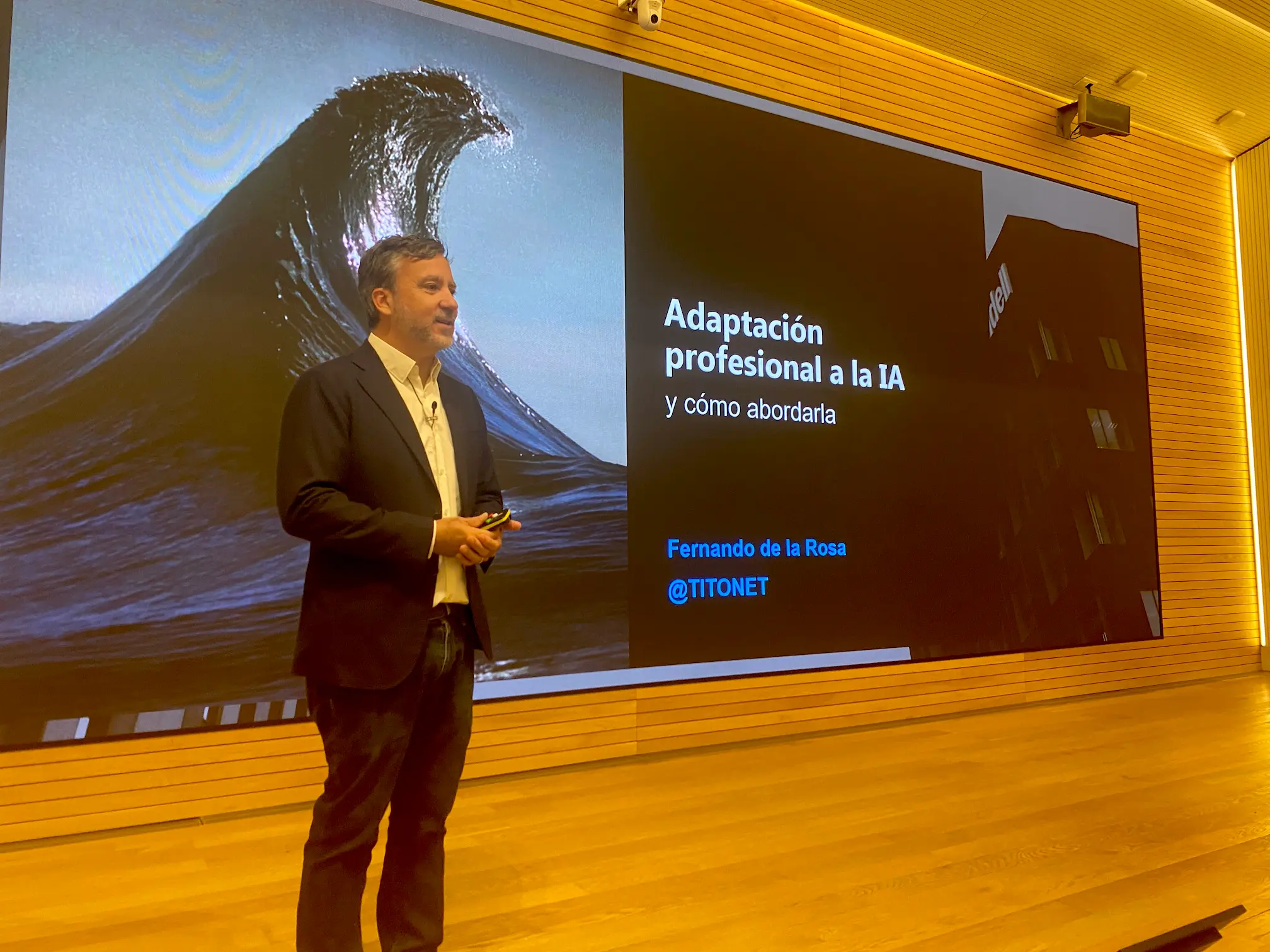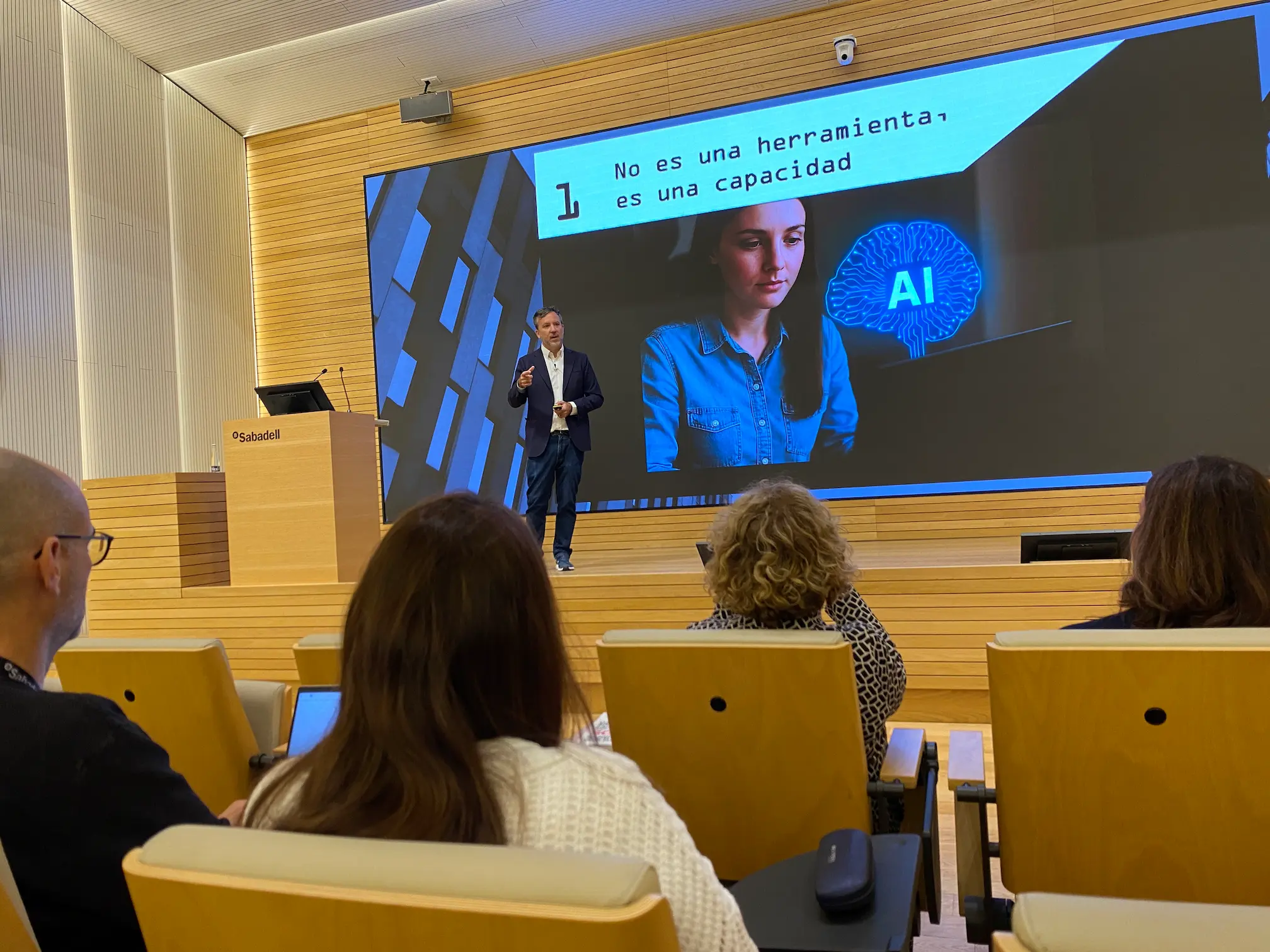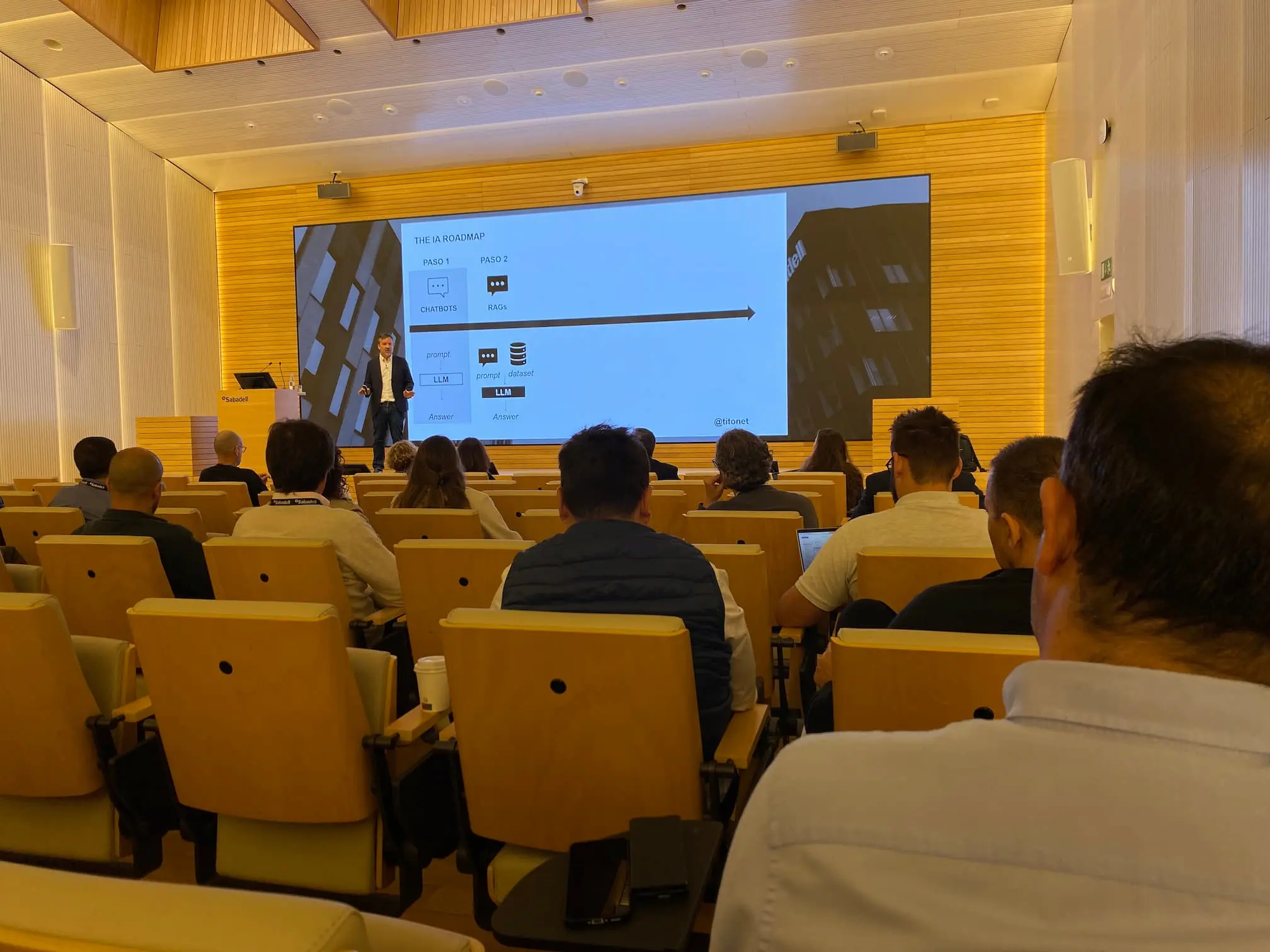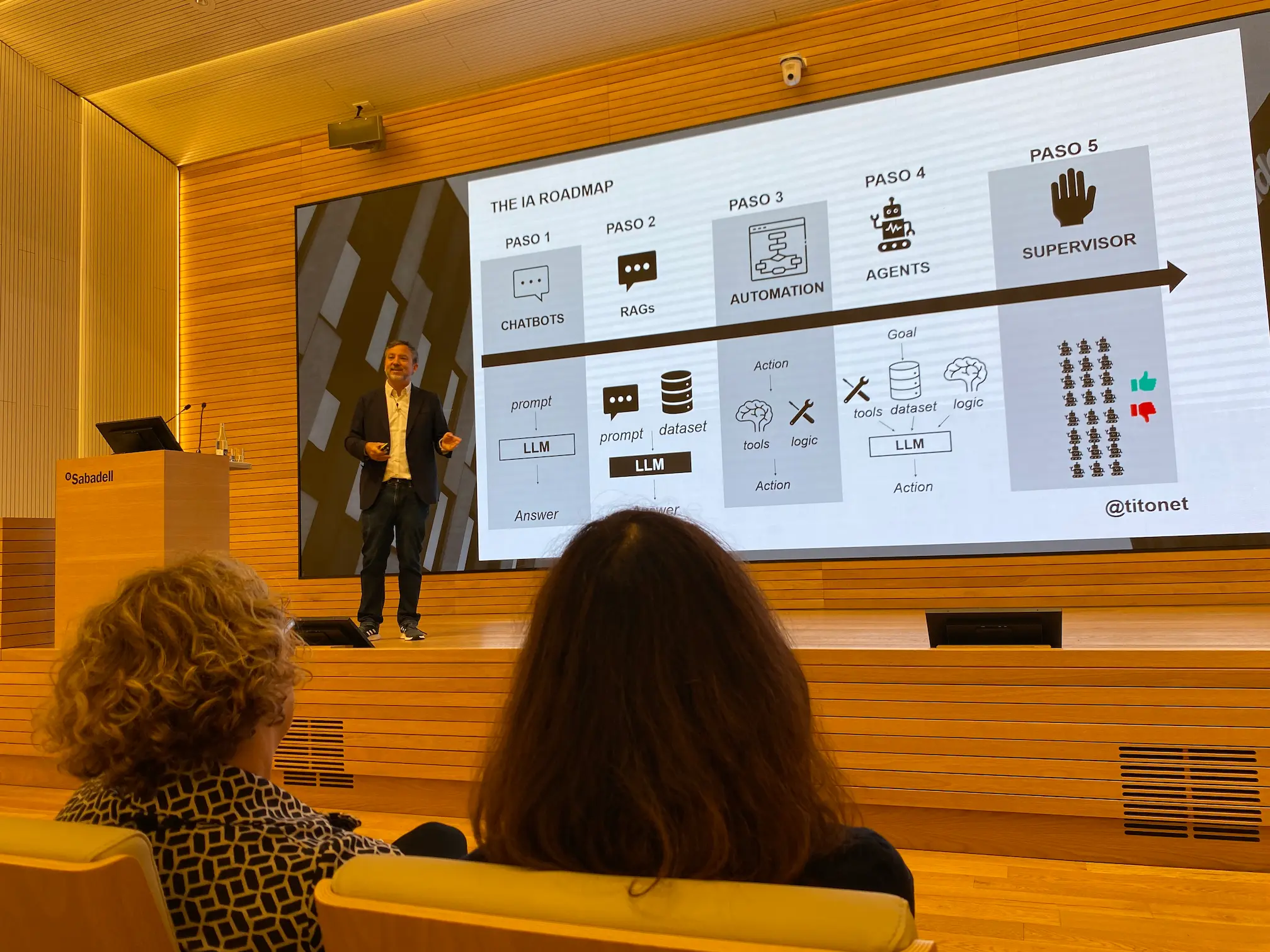
Artificial intelligence (AI) continues to evolve and expand its capabilities while you’re asleep. Would you forego the chance to improve the lives of your loved ones with the aid of AI just because of your fears and the mental barriers to using it? This reflection was very much to the fore during the speech by artificial intelligence expert Fernando de la Rosa during the Sabadell Forum DisruptIA Cycle, an initiative organised by the Artificial Intelligence and Data team at Banco Sabadell.
The founder of the Titonet blog put forward a key idea: AI shouldn’t just be regarded as a tool, but also as a capability that transforms the way in which we think and create new logics by means of dialogue with technology. This approach invites us to reconsider the role of artificial intelligence, not only as a means of technical support, but also as a true catalyst of cognitive and cultural change within organisations.

Overcoming the fears of artificial intelligence so as to move forward
One of Fernando de la Rosa’s main messages was the importance of overcoming the fears and mental barriers holding back the implementation of artificial intelligence (AI). One of them is the dread that AI will do away with jobs. “It’s not a matter of programming, it’s about changing the way we think about problems”, he explained. It’s crucial to understand that AI doesn’t replace, it extends our human capabilities, and that its use calls for an open mind based on experimentation, conversation and adaptive logic.

TDT: Fernando de la Rosa’s practical rule for applying AI
To foster the integration of artificial intelligence into companies, De la Rosa proposed a simple but effective rule that he applies himself: TDT (Tasks, Data and Tools). The method consists of identifying the tasks to be optimised, collecting and structuring the necessary data and, finally, choosing the most suitable AI tool. This sequence helps to prevent the common mistake of adopting technology without a defined purpose, facilitating a strategic implementation with real business value.
Fernando de la Rosa: “Artificial intelligence isn’t a tool, it’s a capability”
Analysis of the actual use of AI
During the session, Fernando de la Rosa shared the results of a study conducted by his company with over 5,000 professionals, focusing on the actual use of artificial intelligence (AI) in the workplace. The data provide a clear picture of its current status and degree of adoption:
- Only 4% of the respondents use AI intensively and in a cross-disciplinary manner in their daily work.
- 20% have tried it for specific tasks, such as text generation and data analysis.
- The remaining 76% are yet to incorporate AI in a meaningful way, mainly due to a lack of knowledge or training or a fear of change.
These results reinforce the idea that the challenge of artificial intelligence isn’t just a technological one, it’s also cultural and educational. Technology is moving faster than people and organisations, but the transformation driven by AI is already underway. Its impact is so profound that no one can afford to ignore it or be left behind in this wave of change.

Thinking differently, but with a critical eye
Titonet founder Fernando de la Rosa pointed to a common feature of today’s artificial intelligence (AI) models: they’re designed to provide answers even when they aren’t fully certain of their veracity.
“AI seeks to satisfy the user, even if that means just generating a plausible response”, he explained. He therefore underlined the importance of maintaining a critical and analytical attitude towards the results provided by technology. Not everything that AI says is true; validating information and applying critical thinking is a vital responsibility for the user.
Towards a new digital mindset driven by AI
Fernando de la Rosa’s speech can be summarised in one key idea: artificial intelligence isn’t just a question of software, it also involves mentality and continuous learning. Embracing it entails thinking differently, conversing with technology and applying new logics to decision-making. In an environment in which change is constant, developing this capacity will make the difference between adapting and falling behind.